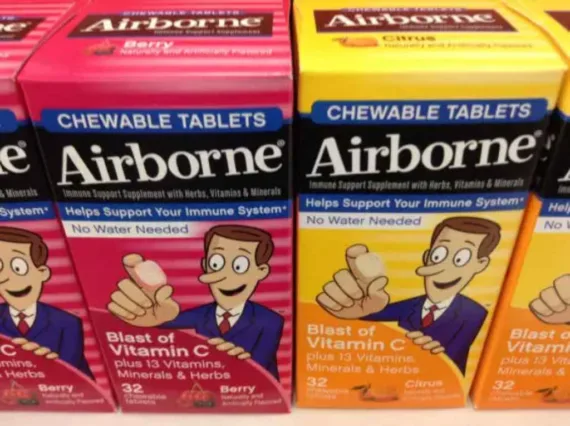HANGOVER FACT #1: A hangover is the result of drinking too much alcohol over the past 24 hours.
A hangover is the body’s reaction to being poisoned with too much alcohol.
HANGOVER FACT #2: The more you drink, the worse your hangover will be.
Hangovers set in when your blood-alcohol levels start to fall, and the worst symptoms begin when the levels drop to zero.
HANGOVER FACT #3: Hangovers typically last anywhere between 8 and 24 hours.
The only thing your body needs is time — depending on your weight, it takes about 3 hours to eliminate every 2 drinks you’ve had that night.
Okay, so those are a few important facts about hangovers. Now here are some of popular myths about hangovers…
Hangover Myths
The following things will not cure a hangover:
Drink liquor before beer.
There’s no evidence that drinking in a particular order (“Liquor before beer never fear, beer before liquor never sicker”) alters how sick you get. However, with any alcohol, your inhibition decreases, which often leads to drinking more — so if you start with a beverage that has a higher alcohol content, your inhibition goes down more quickly and you tend to drink more. Sticking to beer means that you won’t get drunk as quickly due to the lower alcohol content.
Some research does suggest that the body absorbs carbonated drinks, such as a gin and tonic, more quickly than still beverages. It’s also possible that drinking beer over some mixed drinks on an empty stomach might slow your intoxication. It takes longer for the body to absorb a 12-ounce glass versus a 1.5-ounce cocktail, its equivalent in terms of absolute alcohol. But ultimately, it’s the amount you drink and your pace that will determine how you feel, not the order in which you do it. Source
Drink diet cocktails.
Drinks with fewer calories aren’t necessarily the best choice when it comes to alcoholic drinks.
Alcohol, consumed with a diet mixer, results in higher (BrAC) Breath Alcohol Concentrations as compared to the same amount of alcohol consumed with a sugar-sweetened mixer. Source
Drink coffee or caffeine.
Coffee and caffeine are diuretics, which cause you to lose more fluids and could make your hangover worse. Instead, you should drink water and sports drinks with electrolytes to counter dehydration and replace lost electrolytes — especially if you experienced any vomiting.
While research has shown that caffeine can counteract some of the effects of alcohol in terms of a handful of cognitive tasks, a person’s reaction time is still going to be slower than normal. Source
Take a shower.
It won’t help with your hangover.
Giving a drunk person a cold shower is a bad idea because the alcohol is already reducing their body temperature. Source
Take ibuprofen, aspirin, or acetaminophen.
They’ll help with the headache pain, but they won’t relieve the other symptoms of a hangover. In fact, taking acetaminophen when you have alcohol in your system can actually be very dangerous.
Normally when you take acetaminophen your liver metabolizes it by converting it into harmless compounds, but when you’ve been drinking the liver is busy metabolizing the alcohol so it shunts the acetaminophen to a separate pathway that metabolizes it into toxic compounds that can cause liver inflammation and possibly liver failure. Instead, you should stick to ibuprofen. It not only helps with the headache but treats inflammation. You should take 2 before bed and 2 in the morning. Source
Aspirin while you drink or after a hangover is a strict no-no. Asprin increases acid secretion in the stomach and does nothing to help eliminate alcohol from the body. On the contrary, aspirin was found to increase blood alcohol levels by 26% when taken before drinking. This was found in a study published in the Journal of the American Medical Association (JAMA). Source
Drink more alcohol.
Will only prolong your hangover until later in the day, not cure it. Drinking more alcohol in the morning will only postpone the inevitable.
The so-called hair of the dog — the notion that having a drink can relieve a hangover — only makes a hangover worse. Source
Exercise.
Physical activity won’t rid your body of the alcohol.
One person in 5 believes that sweating off a hangover is the most effective approach. Findings from a recent Department of Health survey suggest that 3.8 million adults pull on their sneakers the day after over-indulging on alcohol. Hangover rating: 0/5 No chance it will work, says Gillian Merron, the Minister for Britain’s Public Health. You’re not going to compensate with a workout. That exercise will simply compound the body’s fluid debt. Source
Eat before going to bed.
The food has to be in your system before you start drinking in order for it to have any effect on your body’s absorption of the alcohol.
Food has to be eaten before the drinking begins if it is to be effective in “absorbing” alcohol. In fact, to say that food soaks up alcohol is actually a bit misleading. When food is eaten first it helps keep you sober in two ways. First, it coats the stomach and so slows its absorption of alcohol and second, it takes the place of alcohol in the digestion rotation. The food really doesn’t soak up anything. The human body can only process so much, and when it’s working on absorbing a plate of nachos the booze just has to get in line.
Girls aren’t as likely to get bad hangovers.
No, ladies cannot escape the symptoms associated with a hangover. If a female drinks the exact same amount of alcohol as a male, she is likely to be twice as tipsy as him. In fact, men have a higher percentage of water in their bodies, which helps dilute the alcohol they consume. When women drink the same amount, more alcohol builds up in the bloodstream.
The constitution of a woman’s body, typically lower body weight with lesser water content and more fat, makes her more susceptible to getting drunk than a man. Besides increased alcohol absorption, men have higher levels of the enzyme alcohol dehydrogenase, which allows guys to metabolize alcohol better. Source
More About Hangover Myths vs Facts
- Hangover Cures: Myth, Legend, And Fact
- Advice On Surviving The Morning After
- Slideshow: The Truth About Hangover Cures
- Ask Men: Hangover Do’s & Don’ts
Professionally, I pursued my Masters Degree in Family Therapy at Texas Tech — where I obtained invaluable expertise and experience helping people with a wide variety of physical and emotional health issues. Personally, I think it's useful when people realize that they're not the only one going through a difficult time. So any time that I think my personal health experiences would be helpful to someone else going through the same thing, I will share my story here. With health issues that I've personally experienced (like Endometriosis, Lyme Disease, Hysterectomy, Skin Cancer, Ganglion Cysts, Autism, and other topics that very few people enjoy talking about) and health products that I've found beneficial (like sleep aids, essential oils, and medications)… I do my best to provide my own raw and honest firsthand experiences that I think others would appreciate hearing about and (hopefully) find helpful. I'm grateful that I have a number of friends who have also been willing to share their very personal stories here — regarding their own physical and emotional health. When I'm not writing about health topics, you will find me sharing Good News & Fun Times as publisher of The Fun Times Guide (32 fun & helpful websites).






